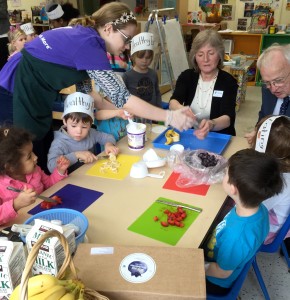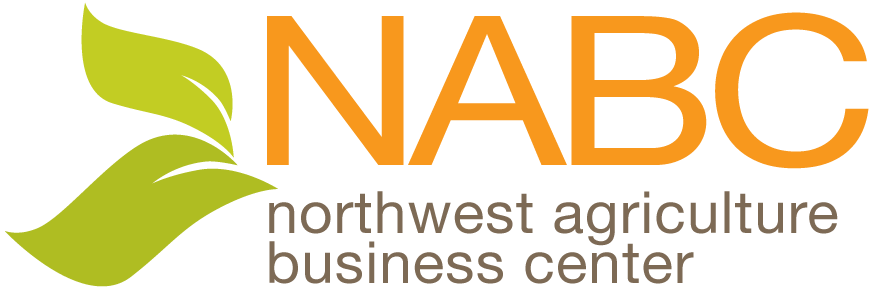Farm to Table and the Puget Sound Food Hub Help Farmers, Increase Food Access

Farm to Table is a partnership led by the City of Seattle in collaboration with Northwest Agriculture Business Center (NABC), Seattle Tilth, Associated Recreation Council, YMCA of Greater Seattle and others in an effort to bring fresh, local produce to programs serving children and older adults in Seattle and King County. By making healthy food more affordable and easier to access, the goal is to increase the health and well being of our community’s most vulnerable populations while opening up a new market for locally produced food.
Since 2010, Farm to Table has helped senior centers, early learning (childcare/preschool) and after school programs to identify purchasing options that meet their needs including buying produce directly from dozens of local, sustainable farms through the Puget Sound Food Hub. More than 2000 children at early learning centers now have access to affordable, healthier foods as a result of Farm to Table programs in South Seattle and South King County.
NABC has been an important partner in Farm to Table since inception. NABC was most recently awarded funding from the HumanLinks Foundation to provide continued technical assistance to 67 early learning and after school meal programs to use (and in some cases increase usage) of sustainably produced, local foods in their meal and snack programs for low-income children. Much of the funding is being used to subsidize food purchases made through the Puget Sound Food Hub to the most sustainable farmers and organic producers in 2015.
The City of Seattle has a strong belief that all residents should have access to healthy food, including children and adults in our most vulnerable communities. Thousands of children participate in childcare programs supported by the City of Seattle, and many of these kids are eating over than half of their meals at the childcare site. Farm to Table increases healthy food access by getting more fresh, local food into these meals. Through connections with farms and partners like NABC, through support for educational gardening and cooking activities, staff and family wellness, and training in seasonal menu planning and scratch cooking, Farm to Table is providing support so that childcare and preschool programs can really do the job that they are meant to: to educate kids and help families stay healthy.
Departing NABC Director of Marketing and Director of the Puget Sound Food Hub, Lucy Norris will continue to lead the Farm to Table partnership on behalf of NABC until the end of 2015. For more information, please email lucy@pugetsoundfoodhub.com.
HOW ARE FARM TO TABLE AND THE PUGET SOUND FOOD HUB HELPING FARMERS IN OUR REGION?
• These efforts open up new markets for farmers to deal directly with businesses and institutional buyers who seek local products, and who purchase large volumes of food, but typically do not shop at farmers markets or farm stands.
• The Puget Sound Food Hub provides shared marketing and infrastructure for local farms to increase sales, reduce costs and waste, and decrease carbon footprint due to coordinated and combined delivery.
• The Food Hub is transparent from field to kitchen – the Puget Sound Food Hub ensures that products are never mixed or combined with other farmer’s product. Farms own their product through the supply chain – their production methods are transparent and food is traceable to the farm. Food isn’t treated like a commodity. It’s not a warehouse store selling nameless, faceless “local” food.
• Equitable to farmers who are empowered to develop and maintain direct customer relationships and leverage the shared services provided to them by the Hub.
• Puget Sound Food Hub makes it easy for businesses and institutions to buy local food direct from many farmers in order, one payment, and one delivery.
Farm to Table was nationally recognized by the Centers for Disease Control and Prevention as a “Health Champion” in 2012 and was awarded the 2014 Sustainability Leadership Award for Resource Impact from Sustainable Seattle and the 2015 United States Conference of Mayors Childhood Obesity Prevention Award.
